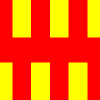Grammar Guide 18 - Clauses
Welcome to week 18 of our ongoing Grammar Guide. This week we are going to chat about complex phrases, the Clause.
A clause is a phrase with a subject and a verb and any complements the verb requires. Depending on the type of clause, it may or may not stand alone as a sentence.
Independent Clause - Expresses a complete thought. Two or more independent Clauses can be joined together with a conjunction.
Example 1: The shingles blew off the roof.
Example 2: I put them in the wheel barrow.
With Conjunction: The shingles blew off the roof, and I put them in the wheel barrow.
Without Conjunction: The shingles blew off the roof; I put them in the wheel barrow.

A note on punctuation: Independent Clauses joined by and, but, for, or, nor, so, or yet should be separated by a comma. Independent clauses joined without a conjunction use a semicolon.
Subordinate/Dependent Clause - Does not express a complete thought and does not make sense on its own. Typically modifies or clarifies an Independent clause. Often has: because, when, who, whom and other conjunctions or relative pronouns.
Example 1: Because it was windy
(this doesn't make sense standing alone.)
Example 2: Because it was windy, the shingles blew off the roof.
Santa Claus - Nah, never mind.

-
References:
- Kern, Jara. (2020). The Infographic Guide to Grammar. Adams Media
- Venolia, Jan. (2001). Write Right! (4th ed.). Ten Speed Press
-
 7
7



1 Comment
Recommended Comments
Create an account or sign in to comment
You need to be a member in order to leave a comment
Create an account
Sign up for a new account in our community. It's easy!
Register a new accountSign in
Already have an account? Sign in here.
Sign In Now